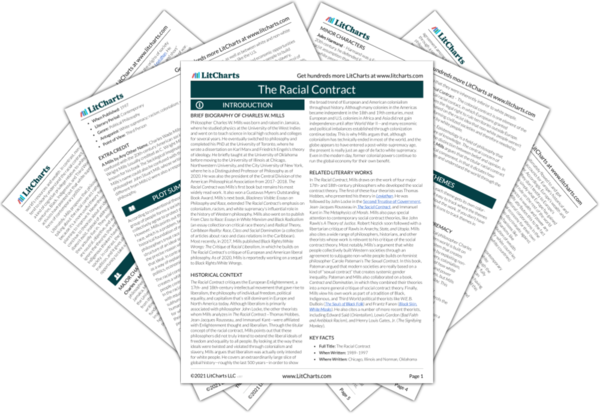Epistemology Quotes in The Racial Contract
The requirements of “objective” cognition, factual and moral, in a racial polity are in a sense more demanding in that officially sanctioned reality is divergent from actual reality. So here, it could be said, one has an agreement to misinterpret the world. One has to learn to see the world wrongly, but with the assurance that this set of mistaken perceptions will be validated by white epistemic authority, whether religious or secular.
Thus in effect, on matters related to race, the Racial Contract prescribes for its signatories an inverted epistemology, an epistemology of ignorance, a particular pattern of localized and global cognitive dysfunctions (which are psychologically and socially functional), producing the ironic outcome that whites will in general be unable to understand the world they themselves have made. […] To a significant extent, then, white signatories will live in an invented delusional world, a racial fantasyland.

Unlock explanations and citation info for this and every other The Racial Contract quote.
Plus so much more...
Get LitCharts A+Ironic, cool, hip, above all knowing, the “Racial Contract” speaks from the perspective of the cognizers whose mere presence in the halls of white theory is a cognitive threat, because—in the inverted epistemic logic of the racial polity—the “ideal speech situation” requires our absence, since we are, literally, the men and women who know too much, who—in that wonderful American expression—know where the bodies are buried (after all, so many of them are our own). It does what black critique has always had to do to. be effective: it situates itself in the same space as its adversary and then shows what follows from “writing ‘race’ and [seeing] the difference it makes.” As such, it makes it possible for us to connect the two rather than, as at present, have them isolated in two ghettoized spaces, black political theory’s ghettoization from mainstream discussion, white mainstream theory’s ghettoization from reality.












